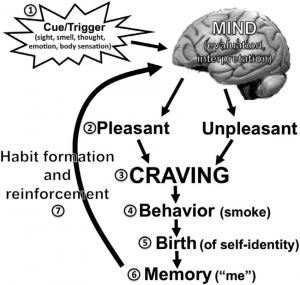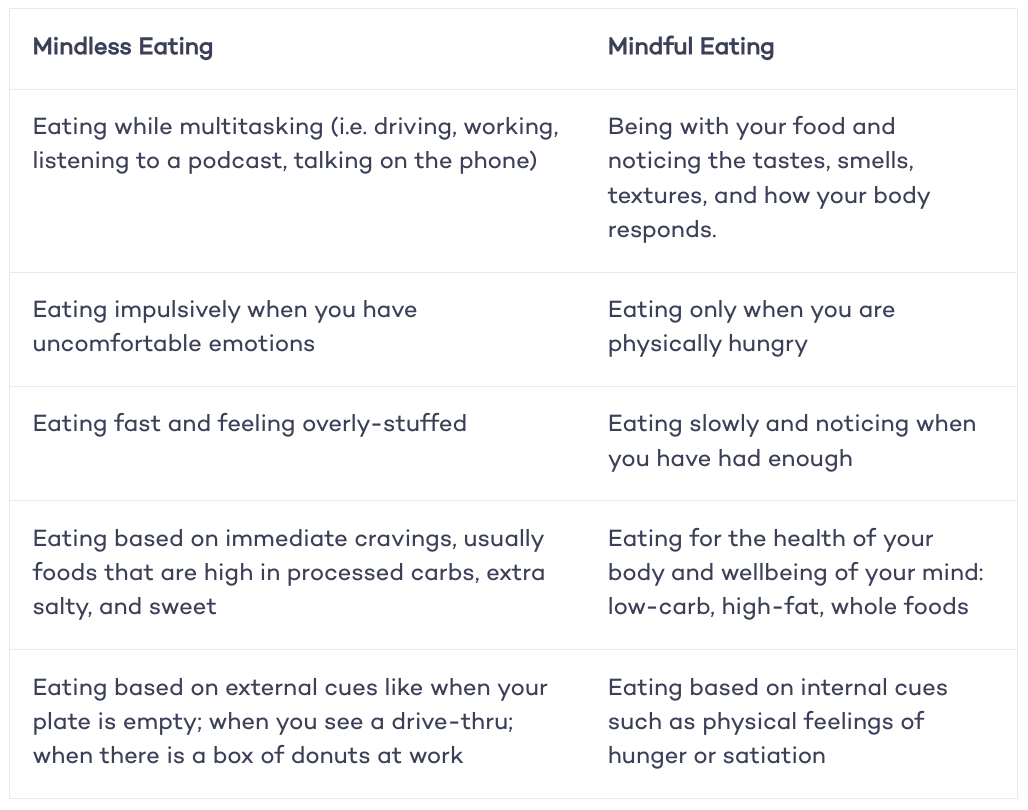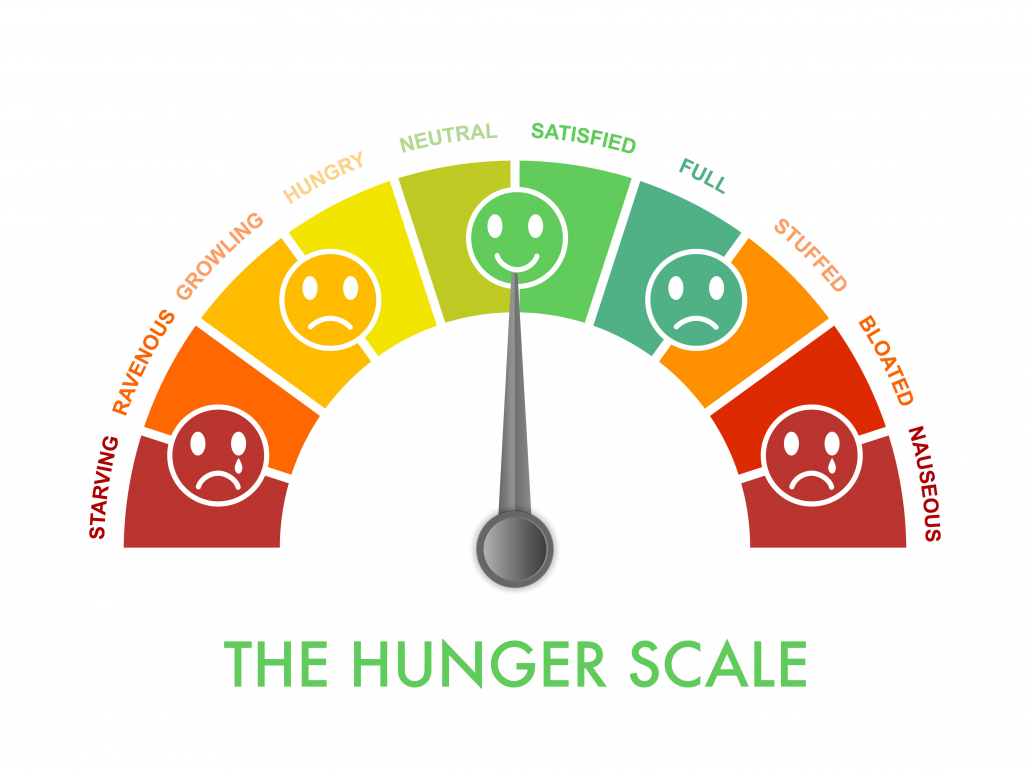
Mindful eating is a group of techniques that can help you become more aware and gain control over why, how, and what you eat.
This article explains what mindful eating is, how it benefits you, and what you can do to start mindful eating today.
Mindful eating is based on the Buddhist principles of mindfulness: Bringing non-judgmental moment-by-moment awareness to your actions and sensations.
By incorporating mindfulness with eating you are bringing your attention to your emotions, thoughts, and sensations around food. This helps to creae more enjoyment, increase gratitude, and support nourishing choices and habits.
Mindful eating means bringing awareness to:

In modern Western society, stress management and weight control are challenged by the busy, fast-paced lives we live. With the popularity of fast and ultra-processed food, microwavables, and meal replacement bars, for many people eating has become mindless.
A 2011 USDA study found that most Americans spend some portion of their day eating while doing other things like watching TV, working, grooming, and driving. In fact, 20% of all American meals are consumed in the car.
As part of the Standard American Diet, at least 1 in 4 people eat fast food on a daily basis. And Americans consume 31% more packaged food than fresh food.
All this mindless consumption of processed foods contributes to numerous diseases and disorders including diabetes, heart disease, infertility, cancers, and autoimmune diseases.
When eating foods high in addictive added sugars, and when distraced, you can override and miss cues from your body that tell you when you’ve had enough to eat. Just as importantly, mindful eating is a powerful tool for enhancing deep enjoyment of healthy foods while bringing the profound benefits of mindfulness into your daily life.
At the most basic level, mindful eating works by bringing awareness to the ways that experiences in life result in bodily and emotional desires, and how these desires result in cravings and eating choices.
To understand how the simple practice of noticing and tracking the cause and effect cycle around food can have profound outcomes for well-being, you need to know a bit more about Buddhis philosophy–specifically how Buddhists understand what “you” are in the first place. This brings us to the Buddhist concept called “dependent origination.”
Buddhists understand “you” as the momentary experience of a changing cycle. It works like this:

By becoming aware of each part of this cycle, you create spaces between them. In these spaces you can bring in healthy intentions and greater sensitivity to your body: Are you physically hungry? Or just emotionally hungry? Is there a better way to honor and feed that emotion?


Studies have shown that mindful eating can aid in the treatment of obesity, weight loss, eating disorders, and binge eating.
Losing weight is hard, but keeping the weight off can be even more challenging. Researchers found that 85% of people with obesity who lose weight will return to or exceed their original weight in a few years.
Part of the challenge is that maintaining a lower weight requires long-term lifestyle changes.
Mindful eating improves weight loss by
The effectiveness of mindful eating on weight loss is proven in numerous studies. For example, when a group of obese people attended a 6-week seminar on mindful eating, they lost an average of 9 pounds during the seminar and at the 12-week follow-up.
Even more dramatic results were achieved at a 6-month seminar for obese people that resulted in an average weight loss of 26lbs. 3 months after the seminar the participants showed no weight gain.
These mindful eating weight-loss results are remarkable when considering that around 85% of obese people who lose weight gain back what they lost or increase weight within a few years of a weight loss regimen.
The stress hormone cortisol is directly involved with appetite regulation. When cortisol is high, it can trigger the body to cue hunger.
Binge eating is compulsive overeating used to cope with stress and anxiety. Studies find that higher levels of stress are associated with same-day binge eating.
Not surprisingly, research shows that obese patients report that stress is a trigger for binge eating.
Numerous studies show that mindful eating can dramatically reduce the severity and frequency of binge eating.
Mindful eating exercises have been shown to help people to differentiate stress triggers from physical hunger and make healthier choices.

Here are a few ideas to incorporate mindful eating exercises into your daily life:
As you can see, mindful eating is all about focusing your attention. If you’re just starting out you may find your attention wandering. But don’t be discouraged. If your attention wanders, just gently bring it back. Think of attention as a muscle. Each time you bring it back, it gets a little stronger.
Mindful eating creates space between your triggers and responses, allowing you to break unhealthy habits, chose more nourishing foods, while bringing greater enjoyment and gratitude to your meals.
Incorporating consistent mindfulness exercises, such as meditation, yoga, mindful eating, and deep breathing, work together to improve the overall quality of your life.



We’re a global community of seekers, healers, and doers committed to reclaiming health on our own terms. When you join the Kiltz Mighty Tribe (KMT), you’ll gain access to education, support, and collective wisdom.


